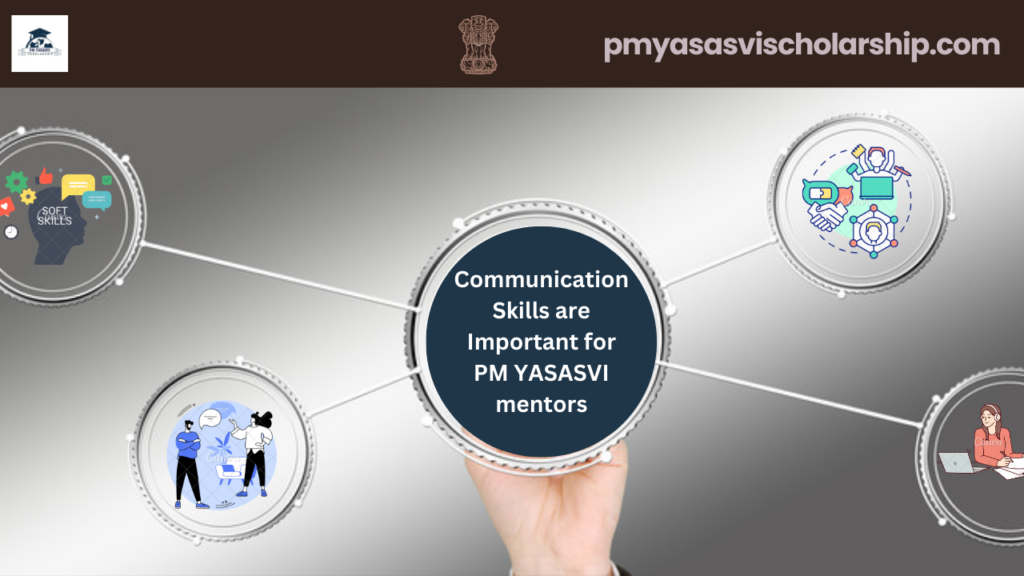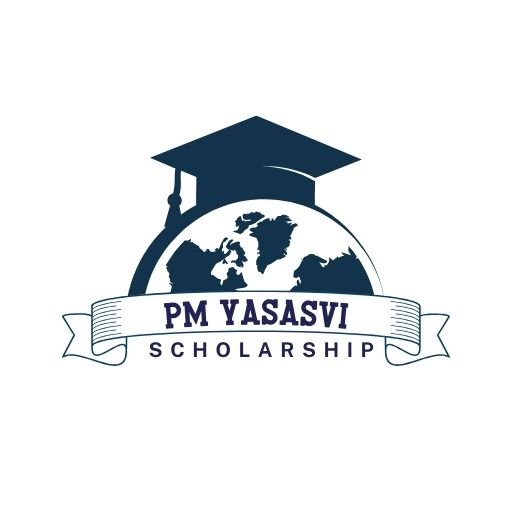Why Communication Skills are Important for PM YASASVI mentors
Introduction

Are you a mentor for the PM YASASVI program or thinking about becoming one? If so, you’re in for an incredibly rewarding journey! Mentorship plays a transformative role for YASASVI scholars, and as a mentor, your guidance can shape their paths in truly meaningful ways. However,mentorship isn’t just about offering advice;Instead,it’s about building a genuine, supportive connection.By this, strong communication skills are essential—your best tools to inspire, guide, and empower scholars effectively. In this post, we’ll dive into the essential communication skills every PM YASASVI mentor needs. With these skills, you’ll be ready to build trust, foster growth, and make a lasting impact.
If you’re ready to fine-tune your listening skills, master non-verbal cues, or deliver constructive feedback,this guide will be your go-to resource.We’ll dive into what it takes to communicate effectively and become an outstanding mentor in the PM YASASVI program, covering everything from cross-cultural communication to conflict resolution.
Understanding the Role of a PM YASASVI Mentor
As a PM YASASVI mentor, your primary role is to support and guide scholars through the challenges and opportunities they’ll encounter along the way. It’s about fostering a safe, open environment where mentees feel comfortable sharing their aspirations, challenges, and even their fears. Through this connection, your mentorship becomes pivotal in helping them navigate both their academic and personal lives, and effective communication is the bridge that makes this possible.
Read More :- Future Opportunities with PM YASASVI Scholarship
Moreover, great communication lays the foundation for a strong mentor-mentee relationship. By establishing rapport built on mutual respect and understanding, you empower scholars to develop confidence and resilience. Clear, empathetic communication encourages them to open up, allowing you to tailor your guidance to meet their unique needs. Ultimately, as a mentor, you’re not only a role model but also a trusted ally on their journey.
Key Communication Skills for PM YASASVI Mentors
Active Listening
Active listening goes far beyond simply hearing words; it involves fully engaging with your mentee and showing genuine interest in their perspective. By listening carefully to both their words and emotions, you gain a deeper understanding of the challenges they face. Therefore, it’s essential to practice active listening by focusing on being fully present, avoiding interruptions, and acknowledging their thoughts with nods or affirmations. In this way, you create a supportive space where they feel truly heard and valued.
Active listening not only builds trust but also shows your mentee that you genuinely value their voice. For instance, try summarizing what they’ve shared or asking clarifying questions; this approach not only helps ensure you’ve accurately understood their message but also demonstrates your commitment to understanding them fully. As a result, by listening actively, you lay a solid foundation for a strong and trusting relationship.
Empathy in Communication
Empathy is key to understanding your mentee’s perspective and supporting them emotionally. It involves putting yourself in their shoes and responding in a way that acknowledges their feelings. When you communicate with empathy, you’re telling your mentee, “I understand, and I’m here for you.” This can be as simple as saying, “That sounds challenging, but I believe in your ability to handle it.“
Showing empathy doesn’t always require words. Sometimes, a gentle tone or a warm expression can convey as much understanding as spoken affirmations. By communicating empathetically, you create a safe space where mentees feel respected and understood—a place where they can freely express themselves.
Clear and Concise Messaging
Clarity is everything! As a mentor, your job is to communicate ideas in a way that’s easy for your mentee to grasp. This might mean breaking down complex information or explaining concepts in a straightforward manner. When you simplify your language, you reduce the chance of misinterpretation and ensure your mentee truly understands your message.
Concise messaging is also essential. Avoid overwhelming your mentee with too much information at once. Focus on delivering one idea at a time, and don’t hesitate to check in and confirm their understanding. Clear, concise communication helps you connect with your mentee, fostering an environment where they feel comfortable asking questions and seeking clarity.
Building Trust and Rapport
Building trust is essential to mentorship, and communication is the foundation of that trust. Simple acts like maintaining eye contact, remembering personal details, or acknowledging achievements show that you care. When you are honest and open, your mentee is more likely to reciprocate, building a strong rapport over time.
Rapport allows your mentee to feel seen and heard, encouraging them to share more of their thoughts and challenges. Be transparent about your own experiences, including any struggles you’ve faced. This can make you relatable and show your mentee that overcoming obstacles is part of the journey.
Non-Verbal Communication
Non-verbal cues, like body language, facial expressions, and tone, can often speak louder than words. Positive body language—like nodding, leaning in, and maintaining eye contact—signals that you’re engaged and interested in the conversation. A warm smile or a nod can go a long way in making your mentee feel valued and comfortable.
Be mindful of your tone as well. A calm, friendly tone can reassure a mentee, while an abrupt tone might unintentionally discourage them. Paying attention to non-verbal cues, both your own and those of your mentee, can help you gauge how well your message is being received.
Cultural Sensitivity and Adaptability
PM YASASVI scholars come from diverse backgrounds, so it’s crucial to communicate in ways that respect and embrace cultural differences. Take time to understand your mentee’s cultural context and be open to adjusting your communication style to match their preferences. This might mean being mindful of language, tone, or gestures that are culturally specific.
Adaptability shows your mentee that you respect their identity and are willing to learn from them. This openness helps build a bond rooted in mutual respect and encourages your mentee to be their authentic self.
Conflict Resolution Skills
Conflicts are natural in any relationship, and mentorship is no exception. Being able to address and resolve conflicts calmly is an invaluable skill. When misunderstandings arise, address them openly, and focus on finding solutions rather than assigning blame. Clear, compassionate communication can help de-escalate tension and keep the relationship positive.
Having strong conflict resolution skills reassures your mentee that differences of opinion are okay and can be worked through. This approach helps maintain a healthy, open line of communication and ensures both parties feel respected.
Providing Constructive Feedback
Feedback is a gift, but it needs to be delivered with care. Constructive feedback involves highlighting strengths while gently pointing out areas for improvement. Instead of just pointing out mistakes, suggest actionable steps for improvement. For example, “You did great in X, but here’s a small way to improve Y.”
Balancing positive and constructive feedback boosts your mentee’s confidence while guiding them to grow. By framing feedback in a positive way, you empower your mentee to tackle challenges with a growth mindset.
Practical Strategies to Improve Communication Skills
Improving communication skills is an ongoing journey. Try practicing real-life scenarios through role-playing to develop your responses in advance. This can help you feel more comfortable in challenging situations. Reflecting on past conversations and seeking feedback from other mentors can also provide valuable insights into your communication style.
Continuous learning is key. Explore books, online courses, or workshops on effective communication, empathy, and conflict resolution. Remember, every conversation is an opportunity to improve and adapt.
Challenges in Communication and How to Overcome Them
Even the best mentors face communication challenges. Misunderstandings, emotional barriers, or differences in communication styles can arise. One way to navigate these is by asking clarifying questions to ensure you’re both on the same page. Practicing patience and self-awareness is also crucial, as it allows you to remain calm and grounded, even during difficult conversations.
Overcoming communication challenges requires mindfulness. By staying open, adaptable, and reflective, you can turn obstacles into opportunities to strengthen your connection with your mentee.
Conclusion
Good communication is at the heart of effective mentorship. As a PM YASASVI mentor, refining your communication skills will enhance your ability to connect with, inspire, and support your mentees. From active listening to cultural sensitivity, these skills not only improve the mentorship experience but also help your mentee grow with confidence.
Remember, mentorship is a two-way journey, and as you help guide your mentee, you too will learn and grow. So embrace the process, keep refining your skills, and enjoy the incredible journey of mentorship! Your impact will make a lasting difference.
